From Classroom to Delivery Room: Everest Medical Advances Women’s Health at Cal Poly

Centuries-old obstetric tools. Soaring malpractice costs. A childbirth complication that strikes every five minutes in the United States. When biomedical engineering students Jenna Eissmann and Maddie Mumford learned these unsettling facts during their senior project, they knew there had to be a better way. So they formed Everest Medical, a startup on a mission to bring 21st-century innovation to an area of women’s health that has long been overlooked.
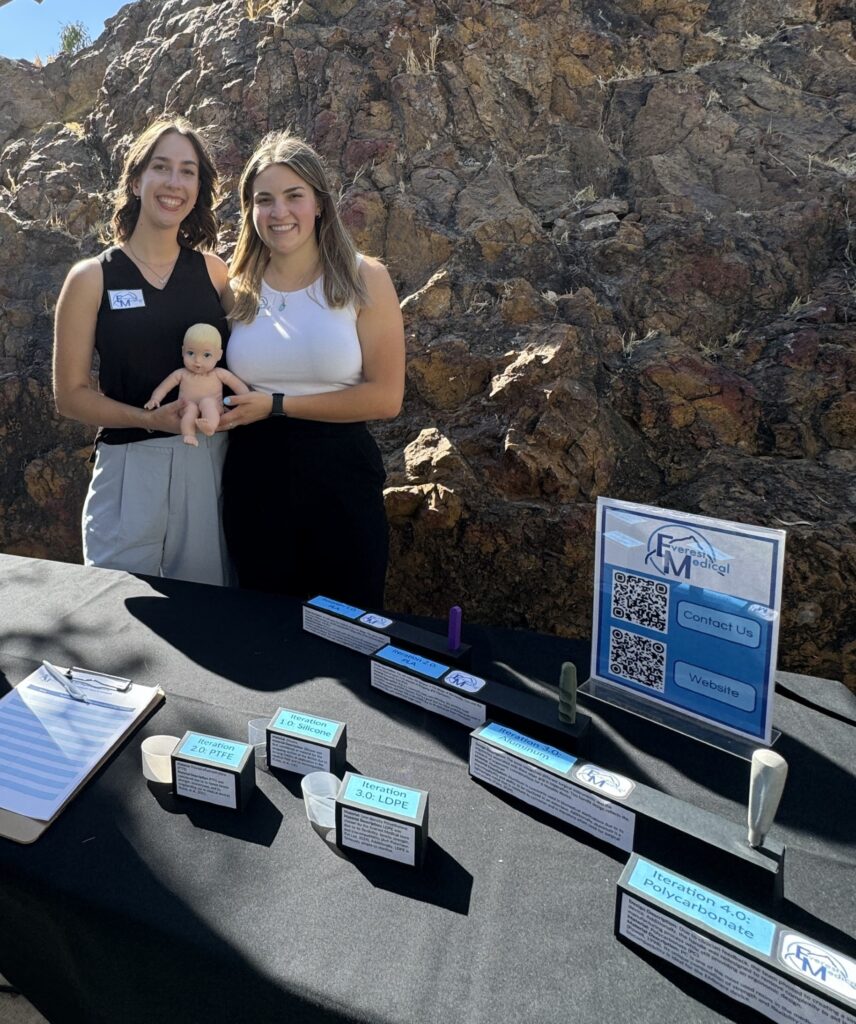
“Birth should be empowering, not traumatic,” said Eissmann, the company’s CEO, who was inspired by personal stories of birth complications. “With shoulder dystocia, doctors have to manipulate soft tissue to free a baby’s lodged shoulders, often causing serious harm to both mother and child. We want to change that.”
Everest Medical builds on the university’s growing legacy of maternal-health ventures, with mentors from groundbreaking startups like Alydia Health and Novocuff Inc. offering guidance. Tom Katona, an entrepreneurship professor who advised Eissmann and Mumford, jokingly refers to Cal Poly as “Birth Tech U.”
Now, as Eissmann and Mumford develop their prototype and pitch it to potential investors, they’re determined to show that an old problem can finally be solved with modern technology and a fresh wave of student ingenuity.
• • •
Despite advances in medical technology, certain areas of obstetrics have remained virtually untouched. Forceps and vacuum extractors, crucial for assisted deliveries, remain strikingly similar to instruments first used hundreds of years ago. These antiquated tools are still used in emergency scenarios like shoulder dystocia, when a baby’s shoulders become lodged during delivery.
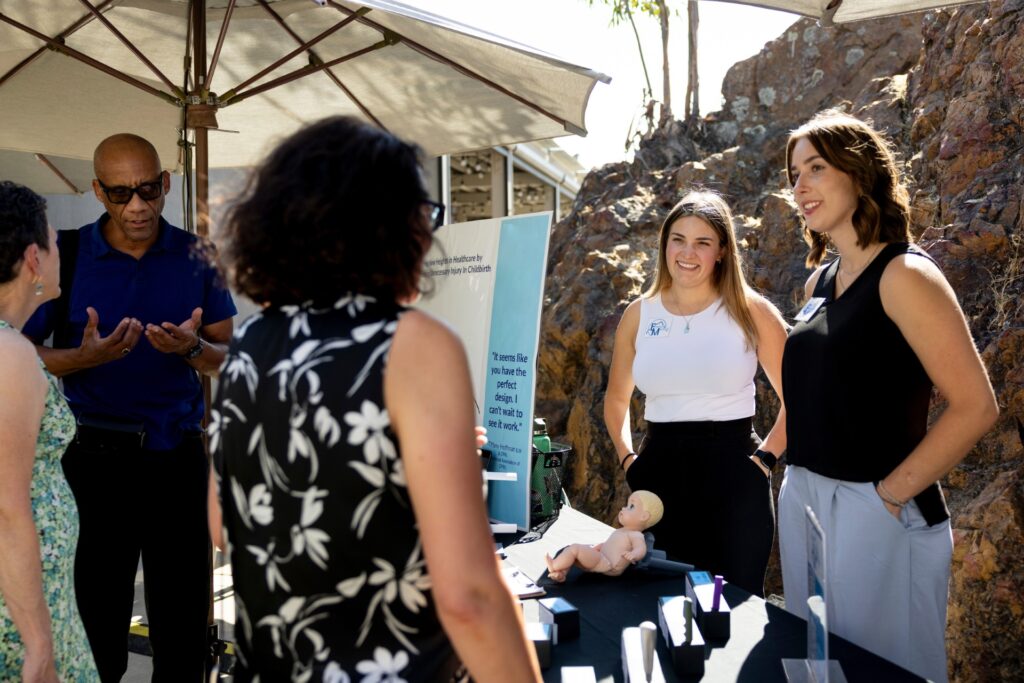
“Every five minutes in the U.S., a baby experiences shoulder dystocia,” said Eissmann,who is finishing her master’s in engineering management. “Too often, the only solutions involve maneuvers that can lead to fractured clavicles, brachial plexus damage, or worse.” According to the founders’ research, shoulder dystocia injuries can trigger malpractice lawsuits that cost the health-care system an estimated $28 billion annually.
For mothers, these complications can bring lasting trauma. Postpartum hemorrhage, severe lacerations and post-traumatic stress are just a few of the risks. “It’s heartbreaking,” said Mumford, chief financial officer of Everest Medical and a master’s candidate in biomedical engineering. “We want to create a device that works with a woman’s body and repositions the baby — an approach that’s safer and more intuitive for everyone in the delivery room.”
Eissmann and Mumford aren’t alone in seeking better solutions. Recent years have seen a surge in women’s health startups, driven by alumni networks, hospital partnerships and entrepreneurship programs that champion everything from safer childbirth tools to innovative postpartum care.
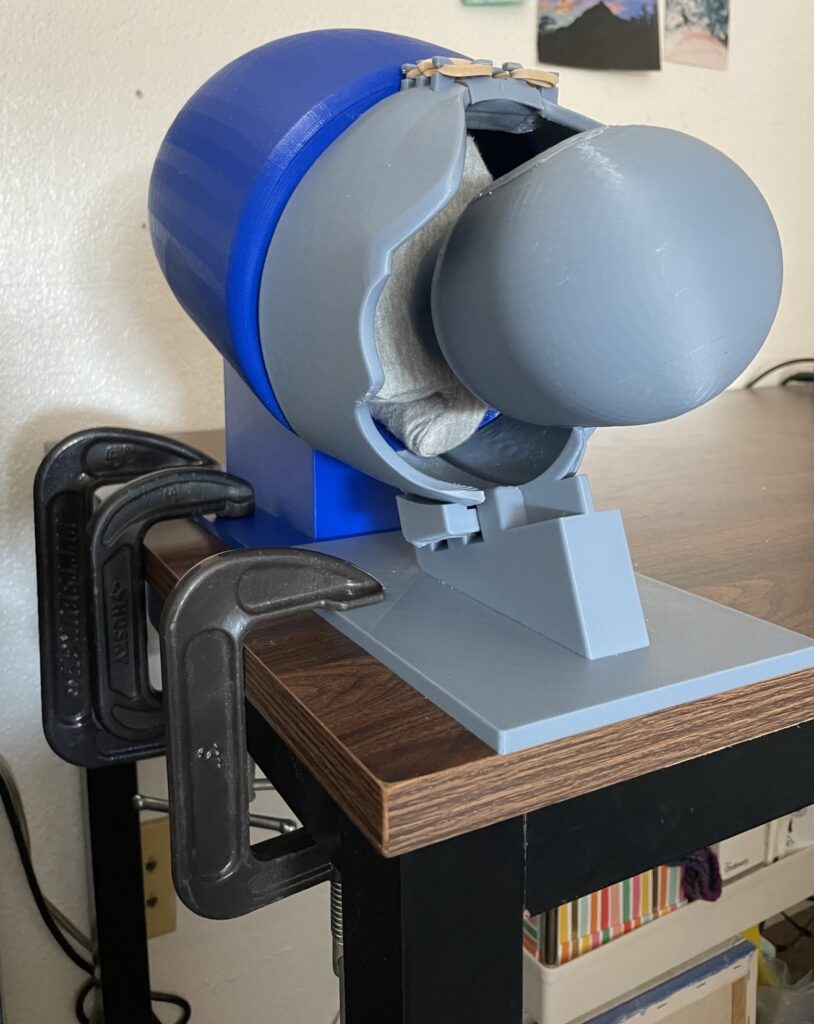
• • •
Everest Medical’s roots trace back to a Cal Poly senior project class, where students brainstormed real-world health-care problems and designed solutions. During those early stages, Eissmann and Mumford tested their idea using an oversized plastic egg and a store-bought baby doll. After graduation, as they formally launched Everest Medical, they advanced to more refined prototypes — 3D-printing both the baby model and a bone structure for the mother’s pelvis while sewing a fabric covering to mimic soft tissue.
“At one point, I was 3D-printing the pelvic bones while using my grandma’s sewing machine to create the fabric layer for our baby model,” Mumford said, laughing. “It was part engineering, part arts and crafts, but it got the job done.”
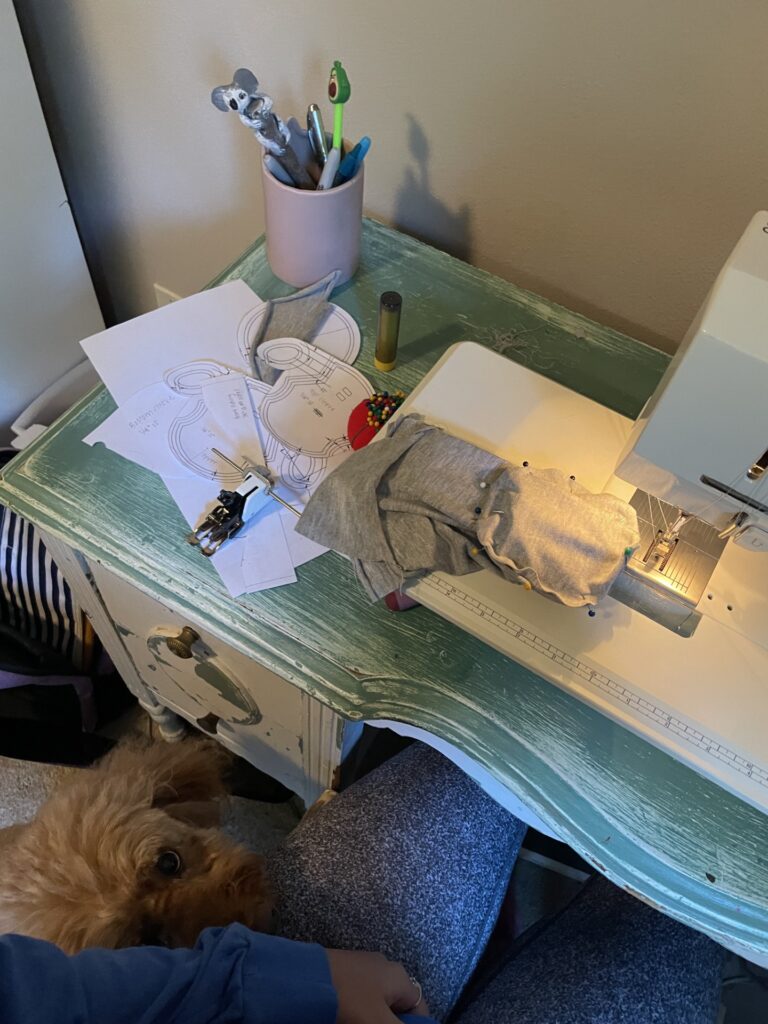
sewing machine in Washington, where co-founder Maddie Mumford crafted fabric
coverings for the team’s childbirth model.
Their work caught the attention of Cal Poly’s Center for Innovation and Entrepreneurship (CIE), which invited them to join its Summer Accelerator program. Guided by mentors, including veterans of Alydia Health and Novocuff Inc., Eissmann and Mumford refined their device, now called EMbrace, designed to gently “hug” the baby’s shoulders and guide them into a safer position for delivery.
“You need the perfect storm of passion and ability, which these two exemplify,” said Katona, who mentors startups in both the College of Engineering and the Orfalea College of Business. “It’s rare for undergraduates to dive headfirst into launching a company, but they’ve got the drive and the data to back it up.”
By the end of the 12-week Accelerator, Everest Medical had secured enough early funding and clinical support to evolve into a full-fledged startup. Today, Eissmann and Mumford juggle graduate coursework, pitch competitions and frequent meetings with nurses, obstetricians and investors, all while refining their prototypes for larger studies.
• • •
Next, Eissmann and Mumford plan to file for a provisional patent, completing a second round of validation studies and preparing for eventual FDA approval through the 510(k) pathway. They estimate that bringing EMbrace to market could take several years and require between $200,000 and $300,000 in seed funding — an intimidating number for any startup, but one they believe is within reach.
“People often approach us with their own or a loved one’s childbirth story,” Mumford said. “Everyone seems to know someone affected by shoulder dystocia. It’s a reminder of how big the problem is and how much support is out there for a new solution.”
Although Everest Medical’s journey is just beginning, the founders say the Cal Poly community will continue to be instrumental to their success. They plan to enter the CIE Incubator in April, leveraging campus resources while forging deeper ties with local hospitals. Their dream is to see EMbrace implemented in obstetrics units worldwide, lessening the physical and emotional toll of assisted deliveries.
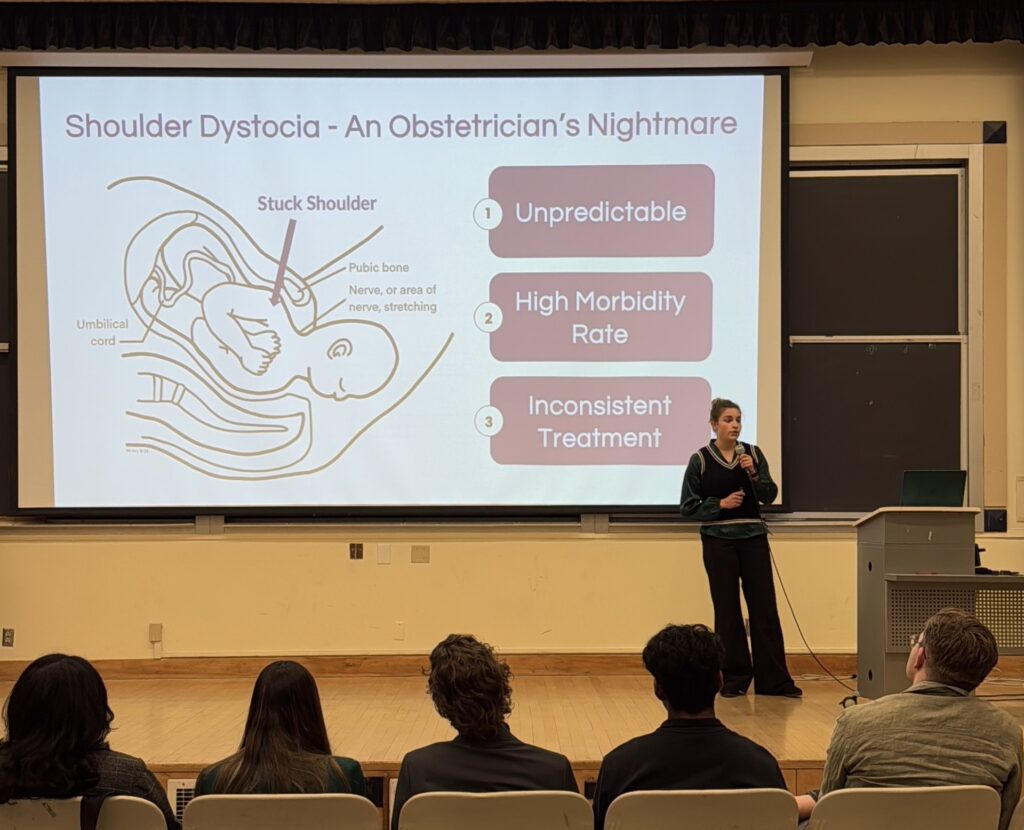
Everest Medical co-founder Jenna Eissmann pitches at TigerLaunch at UC Berkeley, a premier student entrepreneurship competition. The event brings together top student-led startups to compete for funding and mentorship.
“This isn’t just about launching a device; it’s about changing how we view and manage childbirth,” Eissmann said. “Women’s health has been overlooked for too long. If we can help spark a broader conversation and improve patient outcomes in the process, then all the late nights and endless iterations will have been worth it.”
Bolstered by the experience of Cal Poly–launched health-care ventures, Everest Medical stands on the cusp of transforming obstetric care. And if Katona’s joking moniker of “Birth Tech U” becomes a lasting reality, it will be thanks in no small part to the determined efforts of students like Eissmann and Mumford — young entrepreneurs determined to prove there really is a better way to bring new life into the world.
Call to Action: Champion Innovation in Women’s Health!
Everest Medical is transforming childbirth care with engineering-driven solutions that make deliveries safer and more intuitive. Their work addresses a long-overlooked need in women’s health, improving outcomes for mothers and babies. Join the movement by following Everest Medical on LinkedIn to stay updated, get involved and support their mission to bring life-changing innovation to delivery rooms worldwide.
